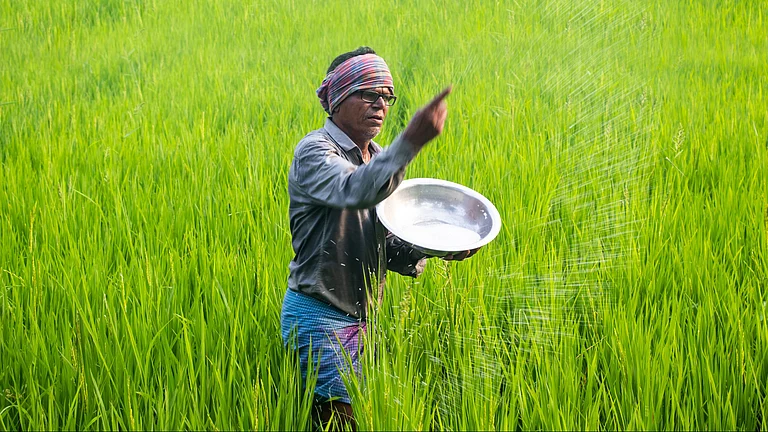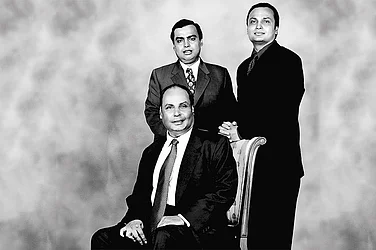The air around us is toxic, and yet, the fact that it is invisible robs it of the urgent attention it commands and makes mobilising concrete action to clean it a huge challenge, feels Bhavreen Kandhari, co-founder of an all-mothers’ action group Warrior Moms. The group aims to initiate a dialogue on the criticality of clean air and push for action by holding governments accountable.
Kandhari, who is based in Delhi, has been working to spread awareness on environmental causes for over a decade now. However, the difference to the air quality in the National Capital Region because of the Covid-induced lockdown in 2020 made her want to act to make the impact more permanent. She calls the pandemic the world’s “largest experiment in climate damage control which was happening naturally”.
On September 7 the same year, also the first International Day of Clean Air for Blue Skies, she and other like-minded mothers joined hands to launch Warrior Moms, a platform from where they could demand their right, and that of their children, to clean air and healthy life. There is a core group of 12 mothers, while the larger group has more than 70 mothers based in different cities of the country, says Kandhari, herself a mother to two teenaged girls.
“Warrior Moms was born because of an immediate need for advocacy. There is a need to fight air pollution on war footing and hold governments accountable for the existing situation. Nothing will change if you do not make the governments answerable,” she says. “Article 21 gives me the right to life, which includes the right to clean air,” she asserts.
Moms in Action
If there is something going wrong, lodging a formal complaint with the government and relevant authorities is the best way to get attention, Kandhari feels. The group has made standard operating procedure (SOP) to highlight its concerns.
“Delhi has been in news for severe air pollution. But, it is there in the entire country,” says Kandhari. She confesses that she did not know about the severe air quality issues in Pune until mothers from there talked about it, adding that Chennai’s air quality was worse than that of Delhi around Diwali. She cites the last year’s report by Lung Care Foundation, which says that one in every three children in Delhi has impaired lungs.
The group also undertook a campaign called #ChulhaFree to demand reduction of prices of cooking gas. Kandhari shares data from the World Health Organisation, according to which, approximately 4.2 million people die from exposure to outdoor air pollution, in addition to the 3.8 million whose deaths are linked to household smoke produced by dirty stoves and fuels.
“The finances of low-income households took a severe beating during Covid-19. While they had got gas cylinders under the Ujjwala scheme, it was getting increasing difficult to go for refills. So, they started going back to biomass burning,” she explains. In February last year, the group wrote to several members of Parliament, demanding allocation of funds for cheaper cooking gas. Recently, on the Children’s Day, the group’s various chapters sent postcards to Hardeep Puri, the Union minister of petroleum and natural gas, highlighting the plight of households due to high price of LPG.
The group has also frequently raised its voice against stubble burning. She advocates crop diversity to deal with the issue in the long term, pointing to the severe pollution cause by burning of paddy stubble. “The government should promote other crops like wheat and millets, for instance, in the mid-day meal scheme,” she argues.
One of the biggest challenges the group faces is a lack of participation in public protests. “Not many come forward to join when we hold public protests. Those who are well-off have their own solutions, like air-purifiers, at homes and in cars; the poor cannot be expected to give precedence to the protest over arranging for two square meals,” she remarks.
Connecting with Mothers
Currently, Warrior Moms has presence in 13 states and has plans to expand further. “Warrior Moms is a movement that carries forward the problems of mothers like me who want cleaner environment for their children,” says Samita Kaur from Chandigarh. Her children have been facing frequent respiratory issues due to the pollution, she says. “The solid waste dump site here has had over 400 fires in the past seven years. Toxic emissions from the dump site in Amritsar, which is just about 1,500 metres away from the Golden Temple, corrode the temple’s gold plating,” she elaborates.
The group aims to reach out to rural areas in coming days. “Nobody is talking about the impact of air pollution on rural and semi-urban areas,” Kandhari says.
Onus on Government
The efforts of the Warrior Moms are directed more at forcing the government to take action, rather than at holding the public responsible, Kandhari explains. “The public behaviour needs to change, but before that the government must do its bit. It must give us dedicated cycling and walking spaces before telling us to cycle and walk. It must lead from the front” she asserts.
Government should have policies that disincentivise factors causing pollution, she argues, citing the example of mandatory congestion charges in London to curb vehicular emissions.
She scoffs at the 2070 target of the Indian government to reach net-zero emissions. “The government needs to act with a sense of urgency. Things need to be done now, so that our children can grow into healthier adults,” she argues.
Collectively raising demands for change is the only way to amplify concerns and force governments to take action, Kandhari reiterates.






























